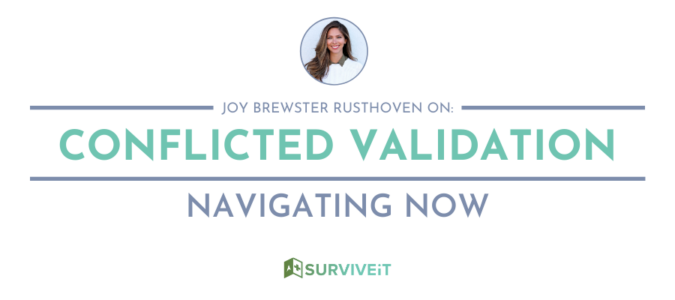Navigating Conflicted Validation | Navigating Now

My first thought when I read “A Panorama of Catastrophe” in The Cancer Letter, was “Wow, did they really just say that?” Immediately followed by, “FINALLY. Someone is honest about the state of cancer care delivery.” Let me first say, I applaud the honesty. This unbiased admission is a promising step toward addressing a major problem that directly affects cancer patients.
“Although we may pretend that oncology is scientific and evidence-based, much of what we do is more related to habit.” They go on to say, “Practice is arbitrary and often transactional.”
– Dr. Debra Patt, Dr. Michael Kolodziej
I was not expecting to come across this when I began reading what I thought was just intel on COVID-19’s cancer implications. I describe this as “conflicted validation” because this statement corroborates what we have experienced as a community of patients, survivors, and caregivers. While we wish this wasn’t the case, it’s “nice” to read this scrupulous assessment. As cancer patients, caregivers and survivors, we know that cancer isn’t just cancer and a one-size fits most approach is no longer acceptable.
I’d like to call your attention to a word they chose to use: “much.” “…much of what we do …” This implies there is an exception to this statement. That exception is outstanding care, and incredibly talented, research-driven, sympathetic doctors. We know from the work that we do every day, there are thousands of them across the cancer landscape, and they would not settle for a transactional approach to a person’s health and trust. (Spoiler alert: We’re doing research to find them and we are going to provide that list to patients who need a qualified second opinion!)
I was recently introduced to Sandy and Ed, a couple who battled cancer for 18 grueling, life-altering months before they discovered molecular testing – through their own research. From their own tenacity, a targetable mutation was revealed through comprehensive genomic profiling, and they found an expert in his type of cancer to take over his case. Today Ed is classified as NED – no evidence of disease. We are in the year 2020. We hear about technology and big data that can be sorted in moments. Yet this man’s options for care were so different than another’s. If there are potential life-defining options, they should not be so hard to find – for anyone.
Unfortunately, this is just one of the challenges patients face.
SURVIVEiT® is realistic that these complex problems exist across the care continuum. We’re here to guide cancer patients in their discovery of the full scope of options available to them so they can make the best possible choices for how they want to chart their cancer journey. Our team of talented, sympathetic, research-driven medical professionals and survivors are working day and night to prepare a new resource tool for you.
I highly encourage a read of the guest editorial I referenced above. It gives an outstanding comprehensive evaluation of the broad impacts of COVID-19 on the cancer community and various stakeholders, as well as promising changes to watch for. It also reminds us of the importance of shared information and the value that we can bring to each other’s lives.
LiVE FEARLESS!
Joy Brewster Rusthoven
Executive Director
